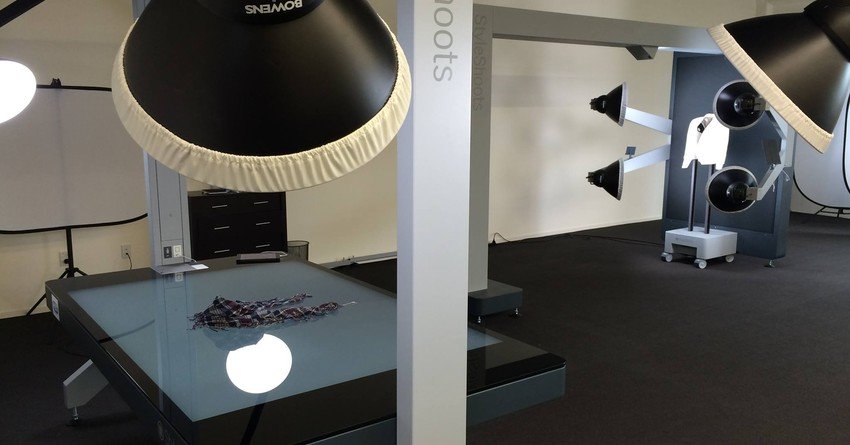LookDepot: The New Zealand company that’s revolutionising product photography

It’s tough to ensure a consistent look and style for retailers’ online presence if several different people or organisations are involved, but with the machines Mackie is importing and selling, it’s possible to bring marketing, photography and visual merchandising in-house.
LookDepot’s flagship machine is StyleShoots. It’s essentially an automated product photography system – it comes as a table-style horizontal machine for flat-lays and non-clothing items or a vertical version for mannequins. Both can be operated via iPad by a single, untrained and unskilled individual, to create high-quality product images with the background automatically cropped out.
Mackie first came across these machines when he was working as a consultant for Kiwi mail order retailer Ezibuy. In his consultancy role, he was asked to streamline the photography side of Ezibuy’s catalogue production, so extended his search globally.
From Manchester in the UK, he found a digitalised marketing system called ‘Matrix’, which now runs all of Ezibuy’s catalogue marketing material. He then came across StyleShoots at an online retailing event in the US.
When he finished his consultancy with Ezibuy, Mackie signed an exclusive distribution deal with Matrix, then added StyleShoots shortly afterwards. His company LookDepot was incorporated in 2014. The company now operates across Australia and New Zealand providing these machines to retailers large and small.
“What we were looking to do was curate the best retail technology that was available globally and bring it to the Australian and New Zealand market,” Mackie says.
Bricks and mortar used to get more attention in retail than ecommerce because stores were a “squeaky wheel” which attracted investment, Mackie says, but the best opportunities for growth are now in ecommerce. Omnichannel ecommerce strategies demand consistency in marketing images, which is what the machines achieve via automation.
“People will do their research, if nothing else, online,” Mackie says. “Every single retailer has this problem.”
He sees the ideal product image for ecommerce as needing consistency with the rest of the retailer’s marketing strategy; quality; and a depth of imagery that allows users to zoom in to view details such as zippers and buttons.
Anybody can use the StyleShoots machine, says Mackie. Taking each image takes 12 seconds: “Instant shots, instant organisation.” It replaces a photographer; a videographer in the case of the video version; a digital image editor; and a post-production team.
He sees the machines as putting content capability into retailers’ hands – no more outsourcing.
“We’re actually putting control of the content back to the brand manager, rather than having a brief go to a photographer.”
A new product, StyleShoots Live, will soon add video capability to LookDepot’s range: “Everyone knows that the video is the missing component.”
Cost has historically been a barrier to producing video content for smaller players, but the StyleShoots Live will enable these retailers to generate high-quality video content in-house.
“The more content you have, then the better the story, the more opportunities the consumer has to purchase because they get a much clearer view of the product.”
Avoiding higher costs on product photography means retailers can redirect that investment into creative brand-building campaign photography campaigns, Mackie says.
The StyleShoots machine is also available for rental by SME retailers at LookDepot’s studio in Kingsland through a complementary business, Asset Factory, which is run by Mackie’s wife Jo Mackie. It has recently handled clear-cut images for Wynn Hamlyn’s newest collection, also working with menswear label Matt Nash; Taylor Boutique; Saben; Triumph & Disaster and Ketz-ke.
Mackie believes his machines give local retailers the tools to compete with global brands. Within 16 months of his setting up LookDepot, the company had secured Australian multi-channel retailer Best and Less, and then sold technology into Billabong. Australian fast fashion retailer Cotton On Group and Kiwi retail giant The Warehouse Group also have its machines.
“A Northern Hemisphere retailer can deliver a product cheaper and quicker than the Australian retailer down the road,” Mackie says.
He says the New Zealand market has been slow to adopt new technology, but it can’t afford to decide not to move forward.




